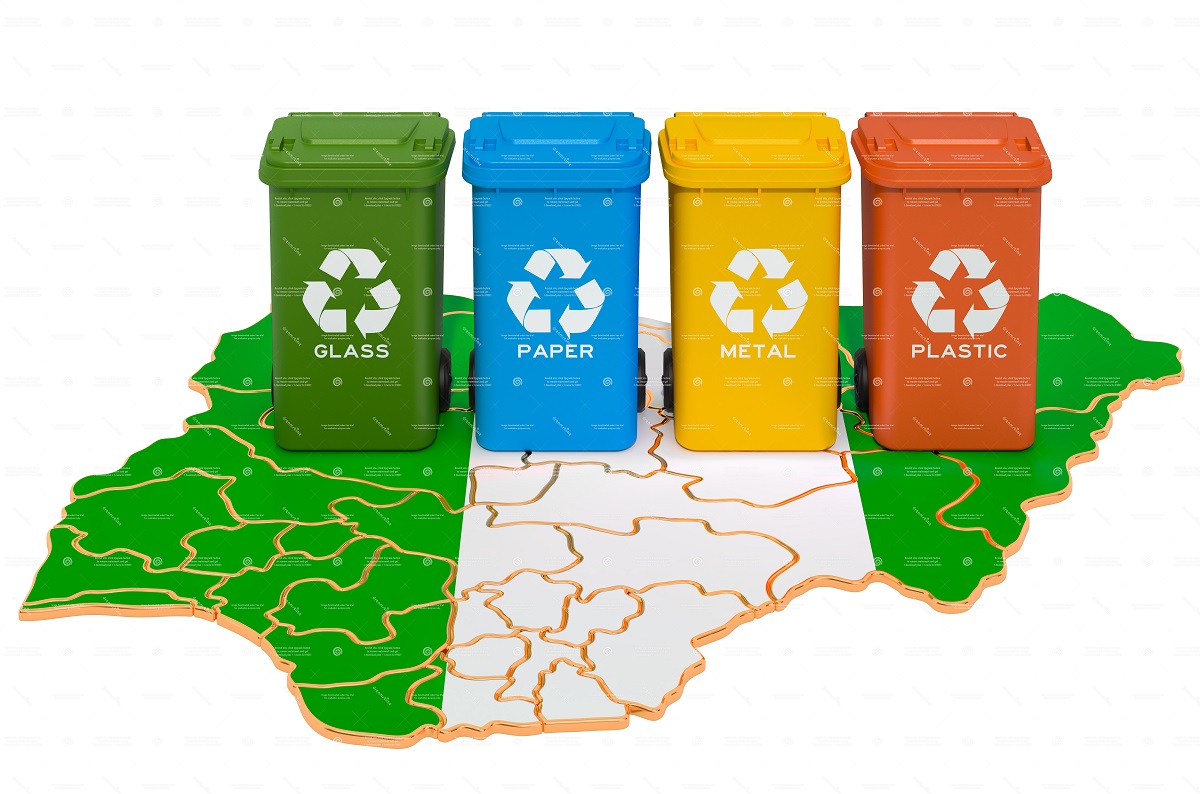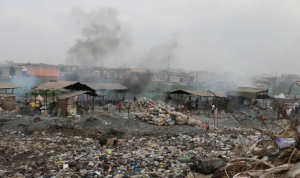In 2015, the African Union declared that cities would be recycling at least 50% of the waste they generate. It is apparent that there is more to do to meet what the UNEP report termed “an ambitious aspiration” as member states pledged their commitment over a decade ago. Waste collection services in most African countries are still inadequate, 90% of waste generated in Africa end up in uncontrolled dumpsites and only 4% Municipal solid waste are currently recycled (UNEP & CSIR 2018). In Nigeria, progress has been slow with less than 12% recycling rate and waste collection rate of 20-30%, far below the 55% average in Africa (UNEP 2018, Bioenergy Consult 2020). With the exception of states like Lagos where government through its private sector partnership (PSP) are addressing head-on, waste management challenges, collection rate is at 95% high, while the recycling industry has witnessed increase in private enterprise recycling different waste streams.
In creating the Nigeria we want, the active participation of all waste generators is imperative for effective waste management process. Initiatives like blue box campaign led by the Lagos Waste Management Authority is a laudable project worthy of mention. The aim is to drive a culture of waste separation, and ultimately optimize the recycling process. The separation of waste at the source of generation is the responsibility of each waste generator. Keeping materials clean and separate is critical, as a concentrated, clean material is a resource, while the same material mixed with general waste will at best be a contaminant and may even turn the mixture into a hazardous waste. Every home, community, business and individuals need to participate actively in waste separation so the benefits of recycling may be maximized.
Ignoring the active engagement of all waste generators in source separation while hoping for success in waste management is impractical and unsustainable. The same applies to waste management principles of refuse, reduce and reuse. So vital is the active involvement of all waste generators that Sysav, a waste management industry in Sweden, has undertaken regular communication activities for more than 20 years to ensure that source separation stays as the main agenda. From South America to Europe, Asia and other parts of the world, the Global Waste Management Outlook Report outlines a unifying factor of success in waste management amongst others- active collective participation in source separation of waste.
The impacts of waste separation and subsequent recycling has multiplier effects of epic proportions. CE Delft, an environmental think tank in Netherlands, estimated a carbon reduction rate of 1.2kg CO2 eq. for each kg of plastic recycled. Recycling about 3834kg of plastic will result in CO2 reduction equivalent to pollution caused per passenger car in a year – a feat that can be achieved if 451 people or 90 families of five generators separate their plastic waste for recycling. Consequently, it will result in a monumental reduction of 8.5kg of plastic waste per individual or 42.5kg per family of five or 3825kg per 450 persons in year that may have ended up in the landfill (EPA 2021, EuroMap 2016). With the waste volume of uncompressed 50cl PET bottle generated per person per year about 0.45m3, 11 active waste separators of plastic that goes to recycling can avert clogging of a 10m long, 1m wide and half meter deep drainage.
In addition, active participation in source separation of waste and attendant recycling will result in reduction of pollution burden on the environment and energy conservation. Fahey and others (2009) estimated a 50yr old oak tree covering one acre would sequester 13608kg of CO2 per year. It will only take active source separation and recycling of waste plastic generated by 750 individuals to relieve the acre’s tree cover of CO2 pressure. Facilitating recycling of glass waste through source separation will result in 20% energy savings compared to making them from original materials based on findings by Swedish’ Vimmerby Energi & Miljo AB. A family of four actively separating a metal tin waste per person and subsequent recycling can save energy needed to watch 28hrs of TV! Also, with an average 0.45 to 0.6kg of waste generated per person of which 70-80% are organic, an household of four that separates its food waste for biogas production can save enough energy to cook a meal (Wasteaid UK and CIWM 2017).
The Nigeria we want is one unburdened by waste but enriched by it, a nation of sustainable waste management culture. An environment rid of litters in our drains, neighbourhoods, under the bridges, parks, and beaches where each household in every community and each individual of every organization, group or institution, actively participates in source separation of waste so the right of us all to a clean environment is sustained.






